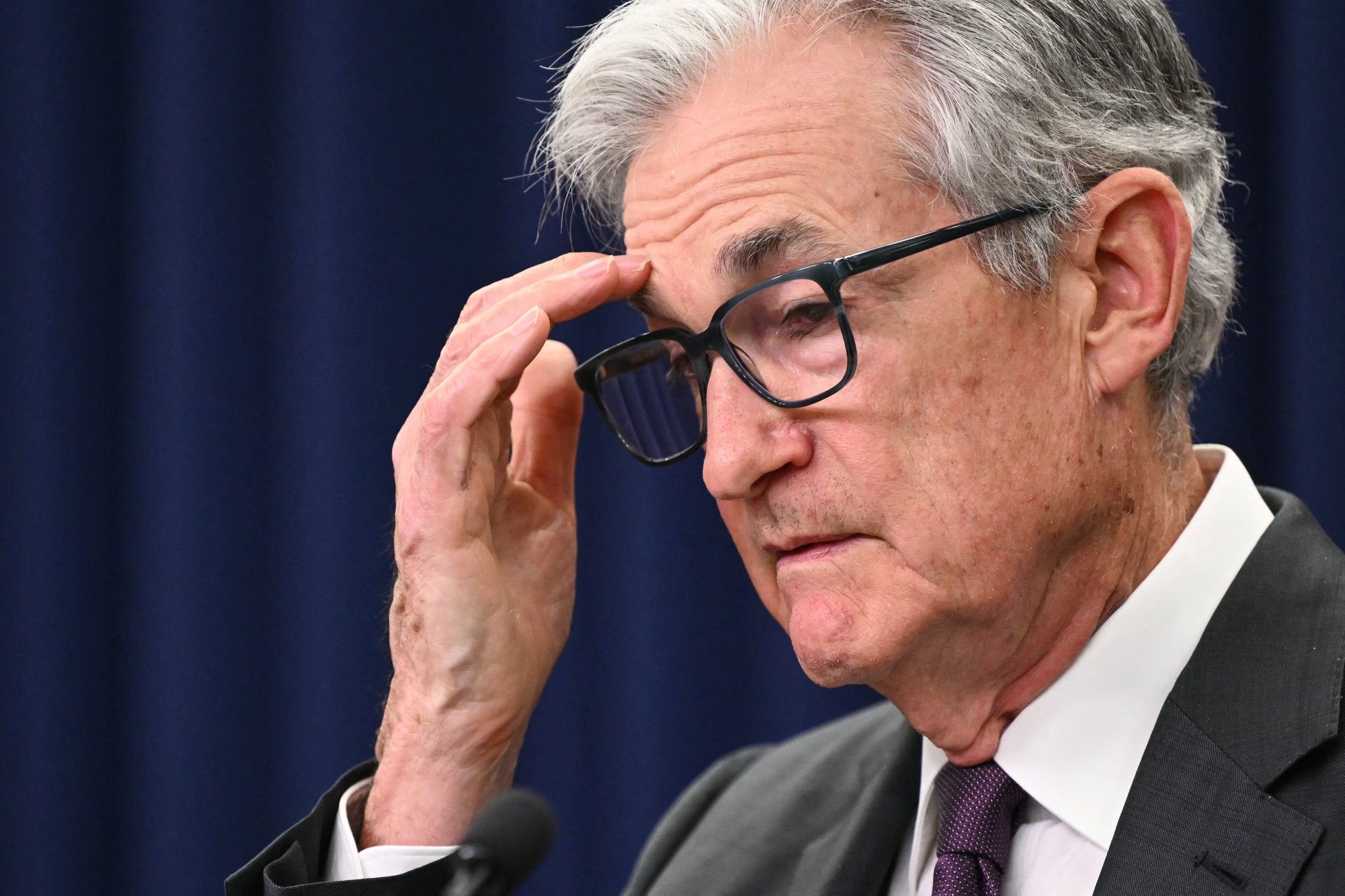Stocks rise ahead of Jerome Powell’s intensely watched Jackson Hole speech
Federal Reserve Chair Jerome Powell will give a speech Friday morning at the annual Jackson Hole Economic Symposium in Wyoming

MANDEL NGAN/AFP via Getty Images
Stocks are up after the market opened Friday as investors eagerly await Federal Reserve Chair Jerome Powell’s speech.
Suggested Reading
As of Friday at 9:50 a.m. Eastern, the Dow Jones Industrial Average is up 0.79%, while the S&P 500 has risen 0.63%. Nasdaq is up 0.54%.
Related Content
Powell is set to give a speech Friday morning at the annual Jackson Hole Economic Symposium in Wyoming where he could give a highly anticipated update on interest rates. Experts are hoping he’ll move to slash rates — but that could pose unlikely.
The yearly Jackson Hole event gathers the world’s most prominent monetary policymakers to talk about labor markets, inflation, finance, and more. However, this year's symposium has largely been eclipsed by President Donald Trump's constant attacks on Powell for not yet cutting rates. He has called Powell a “major loser” and a “total stiff” for not cutting rates, and has floated the idea of trying to fire the central bank chief on several occasions.
Investors and U.S. policymakers will be closely watching Powell's speech for any indication if — and when — rate cuts could come. The Federal Reserve Chair faces pressure on all fronts. On one side, the recent jobs report that revealed a slump in hiring, fueling calls for a cut. On the other, a sharp spike in wholesale prices, fueling fresh concern about tariff-led inflation.
However, with the Fed’s most recently released minutes showing inflation is a bigger concern than weak job market gains, rate cuts could be more of a dream than a reality.
Most Federal Reserve officials in July believed that the risk of higher inflation outpaced concerns about the state of the labor market, according to the latest minutes released by the central bank.
Inflation and the health of the U.S. job market came up in the discussions, with officials determining that price increases constituted a larger risk to the U.S. economy than job losses. "A majority of participants judged the upside risk to inflation as the greater of these two risks," a record of the two-day meeting said.
— Joseph Zeballos-Roig and Alex Daniel contributed to this article.
